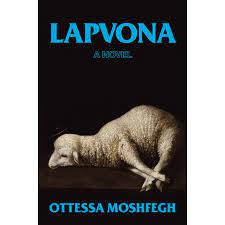- Celebrated New Zealand author Sue Orr's latest novel is a very close, microscopic rendering of personal and generational interactions in a formerly conservative and now progressive society. Her rich and poetic prose brings these tensions vividly to life.
- Charlie was only fifteen when she was sexually abused on the back seat of an old Vauxhall by a boy she didn't know. Whether it was rape or, more technically, an 'unlawful sexual connection' is a side issue. The year is 1978. What we are presented with is a drama of provincial ignorance and profound parental cowardice, typical of the times. The New Zealand government had recently forced the closure of the abortion clinic in Auckland.
- Charlie is on the plane, on her own, headed to Sydney for her abortion, but it's sitting on the tarmac due to technical problems, and the hours tick by. Stressed, she makes a decision she will later in life profoundly regret.
- She gives birth to a son who is immediately wrenched from her. He was named James (Jim) by his new parents, the Cartwrights. And unfortunately, though Orr never provides us with the details, Jim became a drug addict as a young man and spent time in gaol. He turned out to be a lowlife of 'swaggering narcissism'.
- Forty-two years later, in 2020, in the midst of New Zealand's severe Covid lockdown, Charlie is living in Wellington with her eighteen year old grandson, Tommy, who was abandoned as a toddler by his father, Jim. Tommy is a little on the spectrum.
- Jacinda Ardern is now PM and the next election is approaching. She's favoured to win handsomely. How radically different modern times are in a now progressive society.
- There will also be referendum on Euthanasia. For some strange reason Tommy is against it: …failing to acknowledge the great good, the need to protect the weakest among us. He’s also suddenly against abortion, having been sucked into the Pro-Life movement all the way. He even starts applauding the anti-vax, anti-masks, anti-5G conspiracy campaigners. Turns out he's quickly become pretty ignorant and confused. Charlie of course loses it, and screams at him: I got off that jet and had that baby, and that baby turned into that disaster of a human being called Jim Cartwright. Your fucking abomination of a father.
- So we're in the midst of a social critique, one anchored by the personal and domestic tensions of a very ordinary family. As a result the novel at times gets a bit bogged down in pedestrian detail. NZ’s Covid drama in 2020 for example, before Delta and Omicron, is a bit small town and suffocating. It teeters on the edge of becoming a tedious micro story. But Orr paints the micro as the macro really. We're embedded in the totally human in all its critical dimensions. The centrality of relationships is the focus and the legacy of serious decisions made on lives to come. Children denied the love of parents and family amounts to serious, longterm damage.
- Of course Jacinda romps home to victory.
- So does this glorious novel. A real pleasure to read, and full of hope in these difficult times.






